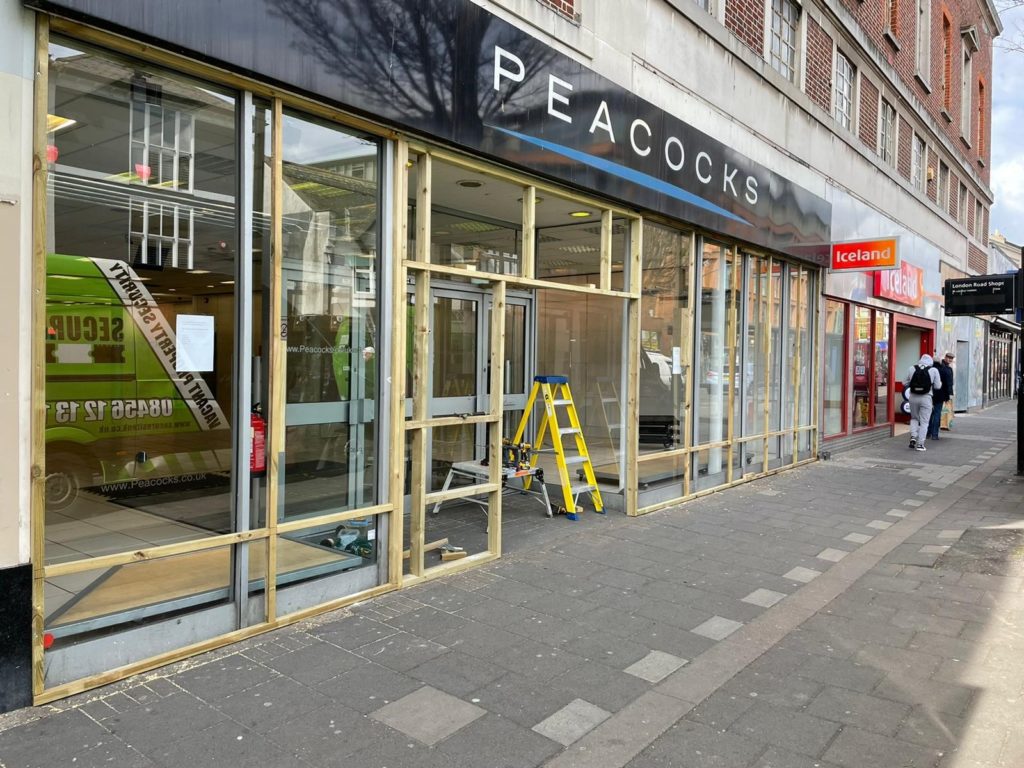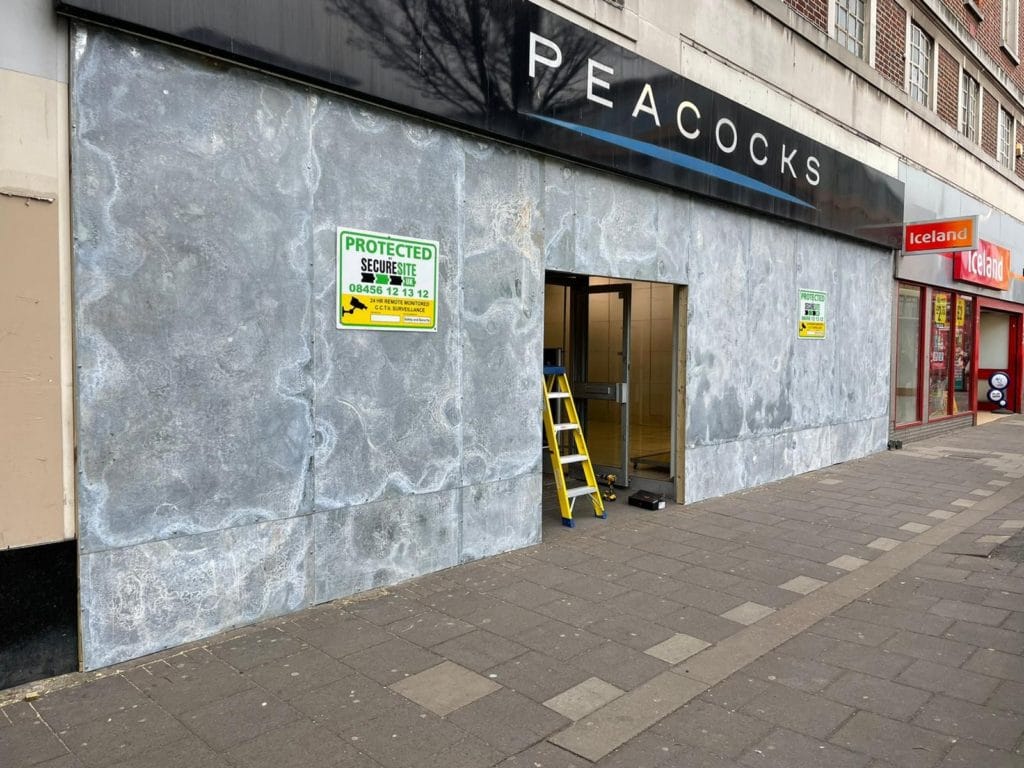Commercial property managers will be used to property voids. These usually occur for various reasons including the end of a tenancy, a redevelopment, a demolition, or an imminent sale.
When a commercial property becomes vacant, it immediately becomes a target for squatters, metal thieves and even vandals and graffiti artists. All of these can cause significant damage to the property.
Steel screening has become the go-to option for commercial property security. Once the building has been secured, the property is less likely to become a target for criminal activity. Timber boarding is still used, but as previously discussed in our other blogs, timber has a number of negatives associated with it, see the table below.
| Timber Boarding | Steel Screens |
| Easily removable or damaged | Robust with improved resistance to attack |
| Fixed with easily removable fixings | Fixed with restricted use fixings |
| Combustible and can be a hazard | Non-combustible |
| Solid and unventilated | Perforated ventilated options |
| Degrades over time | Galvanised and permanent |
| No visual deterrent | Looks actively managed |
The most significant barrier for commercial property managers is how to secure securing the property without causing unnecessary damage to the fabric of the building. Sometimes, property owners take the risk of not protecting the property for fear of damaging windows and doors. But that trade-off can have disastrous consequences.
Boarding Up Methods – What Are Issues Are There?
When a commercial property has reached the end of its cycle of use, the decision to redevelop is often reached. At this point, if the property is either demolished or substantially refurbished the problem of damage to the building’s windows and doors is not an issue.
Where the required security is for a shorter period to manage a void, maybe whilst new tenants are sought or the property is going to have a change of use, often damage to the windows and doors cannot be accepted for obvious reasons.
Modern shop fronts with large plate glass glazed areas are notoriously hard to secure because the supply of new glazing to replace broken windows can run into thousands of pounds. This is a massive cost which can be hard to bear, especially because when a building is vacant, unprotected windows may not be covered by insurance.
Materials that are used in commercial property windows, such as extruded aluminium and PVCu are far superior to materials used in older style windows. These older styles often use wood meaning that fixing can be easily repaired/repainted as part of the process. This isn’t the case with more modern options and generally, they are damaged beyond repair if drilled into.
Developing alternative methods has therefore become essential to ensure that large commercial glazed windows and doors can benefit from steel security without the risk of damage in the securing process.
What Is Studding Out?
Studding out is an option that allows for windows and doors to be secured without the risk of any damage being caused to the frames. It involves making a stud frame that is fixed to the fabric of the building using concrete anchors or chem fixing. The steel is then secured to this frame as opposed to the frame of the doors or windows.
Studding out makes for a very secure option and can often incorporate a secondary entry point, meaning that shop doorways and other recessed areas are removed. This helps prevent rough sleepers, and while not a criminal threat, they can often bring issues associated with hygiene and anti-social behaviour.
Studding out is by no means a new idea, but it is often overlooked as an option because of the increased materials and labour costs. This doesn’t need to be the case and in fact, most steel security jobs are studded out, as opposed to fixing indirect.
Steel Security – Perma Screens
Not necessarily suitable for large plate glass glazed areas, but opening windows or easily deglazed windows, can be secured using this method. The perma screen is a retrofit pre-made screen that is affixed to the outside of the property and attached to steel struts on the inside of the window by a threaded bar. When adjusted, these bars clamp the screen to the wall through the aperture of the window.
This is a non-damaging solution for smaller fixed windows needing a permanent security screen. With a range of screen sizes available, the maximum size cannot exceed 2.5m X 1.25m.
These screens come in two formats: non-perforated for higher security and a perforated screen, which is ideal if you need to get light into the vacant property or to ventilate it during the void period.
Finding The Right Steel Security
It’s understandable that property managers might shy away from installing a security feature that might end up causing more damage to the building. However, when you consider that it is possible to have a steel security solution installed and not cause any damage to the property, it’s a “no brainer”.
You need to secure your vacant property.
Steel security is very flexible and can be installed in a number of different applications, is the best option for peace of mind, and it might save you hundreds of pounds in the long run.
As well as steel security screens, Secure Site UK has a range of additional measures to aid commercial property managers, including self-powered monitored wireless CCTV, concrete barriers, and licenced security guards.
Our solutions when employed holistically, can alleviate the stress caused by anti-social behaviour, theft, arson, fly-tipping, trespassing, and squatting.
If you’d like to learn more about boarding up, get in touch with a professional right now.










